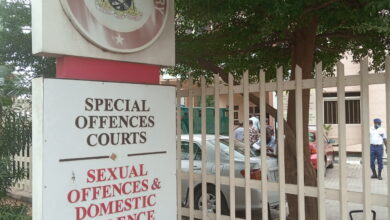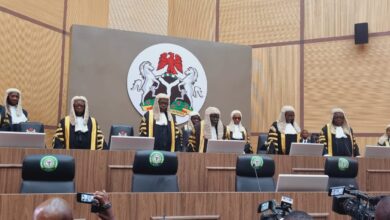
The National Assembly and State House of Assembly Election Tribunal sitting in Ikeja, has struck out a petition by the Allied Peoples’ Movement, APM, challenging the December 5, 2020 election victory of Senator Tokunbo Abiru.
The three-man panel made the order after granting an application by the APM and its candidate Olusola Babatope to withdraw their petition.
The panel is chaired by Justice Bassey Ikpeme with Justice Mohammed L. Abubakar and Justice M.M. Odanya.
Abiru, following his landslide victory at the polls, represents Lagos East Senatorial District in the National Assembly.
But, dissatisfied with the election outcome, the APM approached the tribunal seeking to nullify it.
Read Also: Senate: Democracy Can’t Survive With A Compromised Judiciary
Apart from third defendant Abiru, his party, the All Progressives Congress, APC, and the Independent National Election Commission, INEC, are the first and second respondents.
The session was scheduled for hearing of the APC and INEC’s objections to the APM and Babatope’s petition.
But the petitioners did not file any response to the respondent’s objections.
Rather, APM and Babatope, having appraised the respondents’ defence to their petition, filed an application seeking to withdraw it.
Abiru’s counsel, Mr Kemi Pinheiro, SAN, confirmed receipt of the petitioners’ application to withdraw.
Pinheiro informed the Tribunal that under paragraph 30 of the First Schedule to the Electoral Act, 2010 (as Amended), Abiru had filed the affidavit required and would not be opposed to the application.
The APC’s counsel, Mr Abiodun Owonikoko, SAN, and INEC also confirmed receipt of the petitioner’s application to withdraw.
Consequently, the APM and Babatope’s application to withdraw their petition was heard, granted and the tribunal struck out the petition.








One Comment